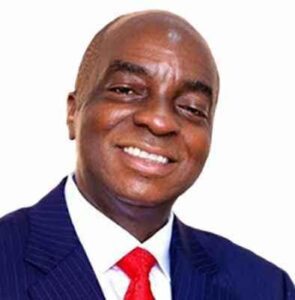


Nigerian military must develop capacity for self-sufficiency – COAS
The Chief of Army Staff (COAS), Lt.-Gen. Taoreed Lagbaja, has reiterated the need for Armed Forces of Nigeria to attain self-sufficiency in production of military hardware to internally meet its operational needs.
Lagbaja said this, while delivering a lecture titled: “Role of the Military in the Protection of Nigeria’s National Interest and Security”, at the Maiden Edition of The Chief of Army Staff Annual Lecture Series 2024, at the Nigerian Army Resource Centre on Thursday in Abuja.
He said the lack of industrial base had turned Nigeria into a mere consumer nation, saying that the Defence Industries Corporation of Nigeria (DICON) Act 2023, would to some extent, address the shortcoming.
According to him, the ability of the country to look inward and produce its needed equipment will help the military to be at par with other developed nations of the world.
He said that experts had argued that international system was anarchical as all the nations pursued their interests at the expense of others.
This, according to him, explains why some of Nigeria’s strategic partners do not assist nor sell equipment to the country and the armed forces of Nigeria.
“In the past, during the civil war and in contemporary era when the Boko Haram crisis was at its peak, Nigeria was denied by the US using human rights record, the international humanitarian law and America’s Adversary through Sanctions act of 2017.
” Nigeria’s ability to procure some of the weapons needed was at variance with the interests of countries involved at that material time.
“While the nation and the armed forces of Nigeria adhered to the specific international standards, the antisocial elements are not and some, like the Boko Haram, do not even recognise those enforcing the standards on the armed forces of Nigeria,” he said.
The COAS called for enhancement of the military’s effectiveness in internal security operations, containing external aggression and territorial integrity for a safer nation starting with implementation of a whole of society approach.
He said the Nigeria’s National Security Strategy 2019, provided for adoption of a Whole of Society Approach to Security, adding that the concept needed to be refined to suit Nigeria’s environmental circumstances.
According to him, awareness about it must be given wider and extensive publicity, using the Ministry of Information and its agencies. .
This, he said, would assist in bringing in all segments of Nigeria society to be part of the efforts, thereby ensuring the citizenry would be ready to assist law enforcement agencies, particularly the armed forces of Nigeria, with information and intelligence.
“This in turn, will entrench trust and cooperation of citizens and local communities with the military and other security agencies.
“It will also take care of the need for the citizenry to understand the essence of security and ensure participation of the private sector,” he added.
Lagbaja called for increased manpower for the armed forces and all other security agencies, particularly the police, to have the requisite capacity to effectively man the nation’s security landscape.
He also called for increased funding for the military to be able to deploy optimally to tackle prevailing security challenges bedeviling the country.
The Minister of Defence, Muhammed Badaru, promised to ensure that the nation reaped the full benefit of DICON with signing of the bill into law.
Badaru urged all Nigerians and private sector to key into the idea of investing in the military industrial complex as a viable and profitable venture for the benefit of the nation.
He said the security situation had been improving , assuring that President Bola Tinubu would continue to do his best to provide all necessary equipment and funding needed to fight the war.
He added that there had been significant improvement in funding of armed forces even though not adequate, adding that the nation is progressively moving toward the right direction.
In his remarks, Tajudeen Adeola, a Nigerian businessman and Co-Founder of Guaranty Trust Bank, who chaired the session, said the purpose of government was to improve the standard of living of citizens.
Adeola said the military, saddled with the responsibility of defending the territorial integrity of the country had continued to keep the country safe and secure.
He said that greater things could only happen if the nation achieved an environment of peace, adding that the military must be equipped and empowered to carryout the responsibility.
The Director-General of NARC, retired Maj.-Gen. Garba Wahab, said the lecture was meant to look at national issues and the role of the forces in national security and interests.
He thanked the army chief for the support to the centre and the minister of defence for his support for the lecture series, assuring that subsequent editions would be opened to interaction.



